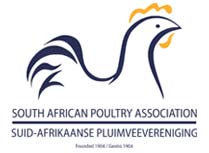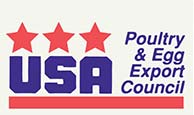The United States chicken industry is applauding an announcement on January 7 made by the Office of the US Trade Representative that the United States and the Republic of South Africa (RSA) have reached a definitive agreement to allow the resumption of exports of chicken parts to South Africa. The deal also paves the way for American pork and beef products to regain access to the market.
 Only a limited number of US poultry and meat products have been exported to South Africa in recent years, due to what US Agriculture Tom Vilsack termed “unwarranted sanitary requirements by the South African authorities.” In fact, a trade barrier has prevented poultry from entering the market for more than 15 years. With this renewed access for US red meat and poultry products, it is estimated that exports to South Africa could generate $75 million in sales annually.
Only a limited number of US poultry and meat products have been exported to South Africa in recent years, due to what US Agriculture Tom Vilsack termed “unwarranted sanitary requirements by the South African authorities.” In fact, a trade barrier has prevented poultry from entering the market for more than 15 years. With this renewed access for US red meat and poultry products, it is estimated that exports to South Africa could generate $75 million in sales annually.
The agreement between the two governments effectively finalizes a pact negotiated last summer between the poultry industries in both countries to reopen the South African market to bone-in US chicken parts, which have been excluded since 2000.
 “We’re pleased that this process has reached a successful conclusion and that US chicken can again be shipped to South Africa,” said Jim Sumner, president of the USA Poultry & Egg Export Council (USAPEEC) and Mike Brown, president of the National Chicken Council (NCC) in a joint statement. USAPEEC and NCC hammered out an agreement in Paris with the South African Poultry Association (SAPA) to end the South African chicken embargo last June, which required the support and approval of the respective governments.
“We’re pleased that this process has reached a successful conclusion and that US chicken can again be shipped to South Africa,” said Jim Sumner, president of the USA Poultry & Egg Export Council (USAPEEC) and Mike Brown, president of the National Chicken Council (NCC) in a joint statement. USAPEEC and NCC hammered out an agreement in Paris with the South African Poultry Association (SAPA) to end the South African chicken embargo last June, which required the support and approval of the respective governments.
 Under terms of the deal, United States poultry exporters are granted an annual quota of 65,000 metric tons of chicken that will be raised incrementally each year. South Africa also agreed to a policy of regionalization in the event of future detections of highly pathogenic avian influenza in the US. Previously, if HPAI were detected in the United States, South Africa would impose a nationwide import ban on poultry. Under the new agreement, bans would be imposed only on individual states affected by the virus.
Under terms of the deal, United States poultry exporters are granted an annual quota of 65,000 metric tons of chicken that will be raised incrementally each year. South Africa also agreed to a policy of regionalization in the event of future detections of highly pathogenic avian influenza in the US. Previously, if HPAI were detected in the United States, South Africa would impose a nationwide import ban on poultry. Under the new agreement, bans would be imposed only on individual states affected by the virus.





